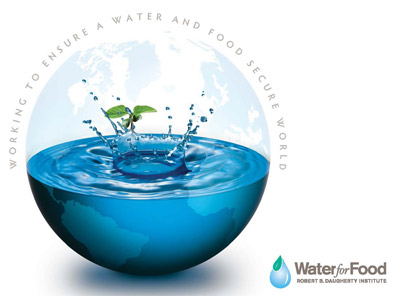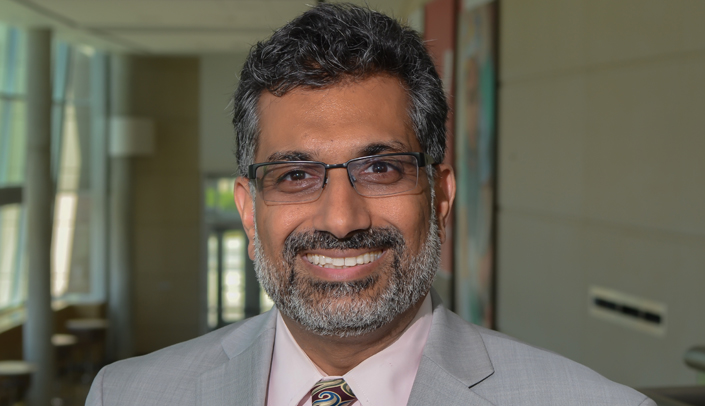More than 30 faculty and senior administrators from all four University of Nebraska campuses took the first steps last week to develop collaborative and multi-disciplinary research projects on water, food and health.
 |
Innovative research project ideas involving all aspects of water — quality, quantity, and sustainability and health — were generated at the first research retreat, hosted by Ali Khan, M.D., M.P.H., dean of the UNMC College of Public Health, and Christopher Neale, Ph.D., director of research for the Daugherty Water for Food Institute at the University of Nebraska.
At the retreat, two working groups formed to propose initial project ideas. One group, led by Elli Rogan, Ph.D., professor and chairperson of environmental, agriculture & occupational health, and interim associate dean of research, College of Public Heath, proposed three projects:
- Expand upon and add value to existing research in Haiti and Tanzania to include water quality.
- Explore the issue of healthy food deserts and gardening in urban and rural areas of Nebraska.
- Study the effects of the increasing number of dairy farms along the I-29 corridor.
The second group, led by Don Beermann, the interim director of the School of Veterinary Medicine at UNL, focused on:
- The need for new research on the long-term effect that high levels of nitrates and other contaminants have on the quality of the state’s water and the subsequent impacts on human health including cancer.
- The need to address “One Health” related issues in Nebraska wherein animals, the environment and people are viewed as interdependently connected — particularly relevant for animal virology and emerging diseases of importance to Nebraska.
Additional focused events will follow throughout the fall. The Water for Food Institute announced recently that $100,000 in seed money is available for grants to launch these projects.
The Water for Food Institute was founded in 2010 to address the global challenge of achieving food security with less pressure on water resources through improved management of water in agricultural and food systems. It is committed to ensuring a water-and-food-secure world without compromising the use of water for other human and environmental needs.
The College of Public Health is capitalizing on the breadth of talents, innovative ideas, and resources of its vast network of students, faculty, and partners to create groundbreaking models for health promotion, disease prevention, and public health policies that support community health efforts for Nebraska, the United States and the world.
